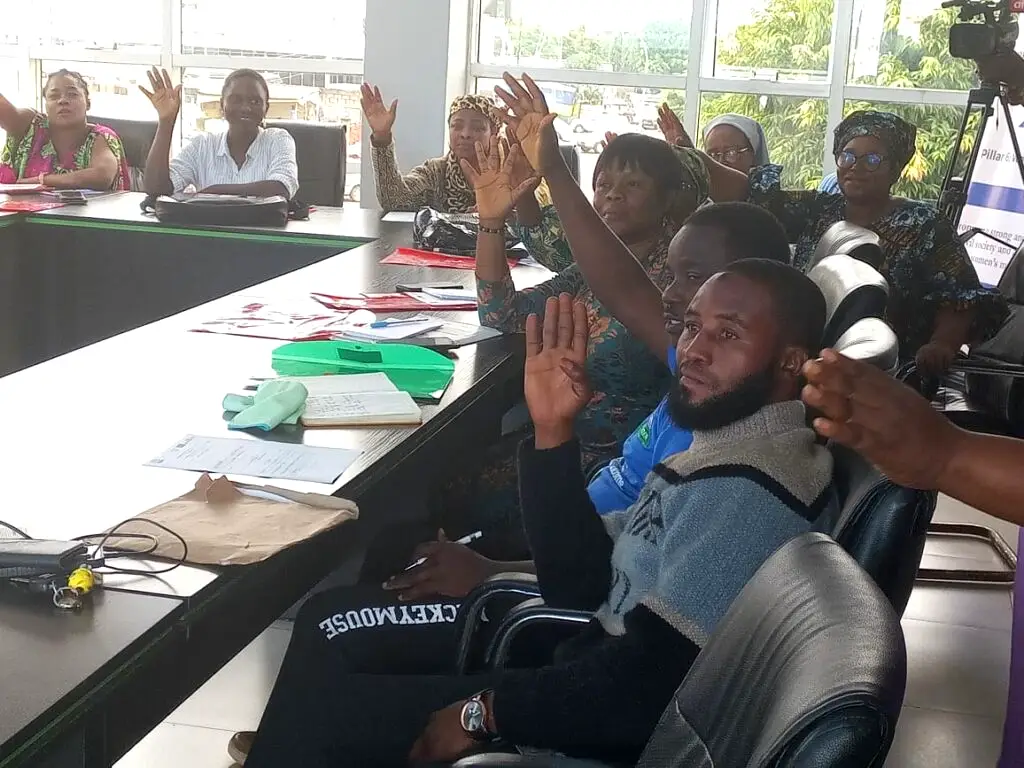About 22 civil society organisations, or CSOs, as well as the Women’s Rights Advancement and Protection Alternative, or WRAPA, have denounced Nigeria’s money politics and called for manifestos that prioritise equality for women.
Prior to this week’s Wednesday campaign kickoff for the numerous political seats up for grabs in the 2023 elections, they laid out their grievances.
The ladies determined that a welcome manifesto is one that emphasises and specifically targets gender equality and women’s empowerment, as well as ensures that violations of sexual and reproductive health rights, harmful practises, and gender-based violence are removed throughout the nation.
Read Also: ‘Money Spent On Politics Can Solve ASUU Issues’ – Sani
‘The harmonisation of the Anti-sexual Harassment Bill and transmission to the President for assent, the reintroduction and passage of the Gender Equal Opportunity Bill, and the implementation of the VAPP Act in all 31 states it has been passed through, including FCT, are key points of every acceptable manifesto to the women of Nigeria,’ they stated.
‘In time past women are cajoled with money and materials such as salt and other food items, wrappers and so on, which in four years to eight years of tenure-ship the women testified that “the clothes are worn out, our children leave schools with no jobs while we the mothers are hungry so are the children we laboured as parents to send to school.’
On Monday, the Women’s Rights Organizations and Civil Society Organizations, independent social groups, including Youth groups and disability groups—particularly those dealing with multiple forms of discrimination/marginalization—joined forces to sign an open letter to Nigerian politicians outlining the issues that the FCT women’s movement considers to be of the utmost importance. The abolition of violence against women and girls was first on the list.
The National Council of Women Societies (NCWS), FCT Widows Organization International, Anwaru-L-Huda League of Women, Women Wing of CAN (WOWICAN), Female Drivers Association of Nigeria, Exemplary Ladies Assembly, Association of Wives of Traditional Rulers (ATWR), Network of Community Leaders, Open Arms Women and Child Outreach International, and National Council of Women Societies (NCWS) were among the organisations that signed the statement (FEDAN).
The League of Women Voters of Nigeria (NILOWV), The African Youth Union Commission, National Youth Council of Nigeria, Pad Up Africa, Association of Women in Trade and Agriculture (AWITA), National Grassroot Association of Nigeria, Precious Cares for All Foundation, Catholic Action Committee On HIV/AIDS (OVC, Vulnerable Households, Girl), Nde Oduko Foundation, Child Education & Crime Eradication Foundation, Advocacy for Women with Disabilities Initiative (AWWDI).
The letter read, “The “Power Changed Hands” Hashtag spread across traditional and social media on 26th September 2022 in an open letter to politicians as they go about their campaigns beginning from 29th.
“The Ten (10) Pillar Partners (TPPs) organizations were leaders of networks/coalitions with over 5,000 followership in the Federal Capital Territory (FCT) (some with national outreach). The open letter greeted the MoU signing of the WRAPA EU-UN Women Spotlight Initiatives to jointly promote the elimination of violence against women and girls including other gender-friendly policies in FCT and Nigeria as a whole placing it as a top priority for women’s agenda in the 2023–2027 political era.
According to records, Nigeria has a population of over 200 million people, with women making up half of that number. Despite this, gender inequity persists in practically all spheres of human progress. According to INEC data on voters in the 2019 elections, students (young) took the lead with 26% of the vote, followed by farmers and fishermen (16.28%) and housewives (14.12).
This suggests that women and girls in Nigeria, particularly those in the informal economy, actively participate in electoral processes by casting their votes, almost to the same extent as do their male counterparts, or in a closely related matrix.
WRAPA adopted the ten Pillar Partners strategy to ensure that women’s coalition/networks of Women’s Rights Organizations and relevant CSOs, autonomous social groups, youth groups, and disability groups, especially those facing multiple forms of discrimination/marginalization, commits to cascade WRAPA projects to their various networks and coalition for inclusion, deepening (reach the unreachable), scalability, and sustainability.

